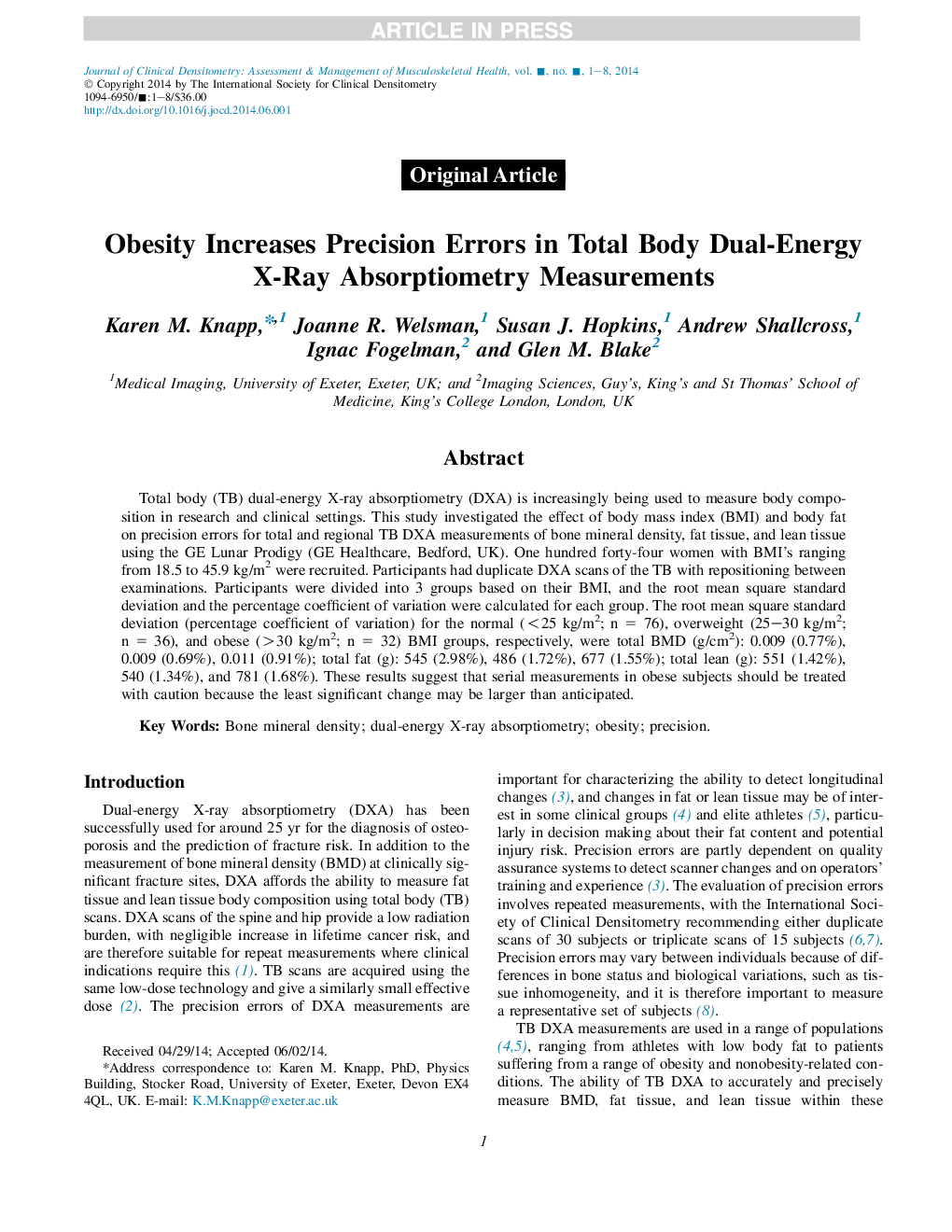| کد مقاله | کد نشریه | سال انتشار | مقاله انگلیسی | نسخه تمام متن |
|---|---|---|---|---|
| 3270633 | 1208248 | 2015 | 8 صفحه PDF | دانلود رایگان |
عنوان انگلیسی مقاله ISI
Obesity Increases Precision Errors in Total Body Dual-Energy X-Ray Absorptiometry Measurements
ترجمه فارسی عنوان
چاقی با افزایش اندازه گیری های جذب اشعه ایکس دوگانه بدن، خطاهای دقیق را افزایش می دهد
دانلود مقاله + سفارش ترجمه
دانلود مقاله ISI انگلیسی
رایگان برای ایرانیان
کلمات کلیدی
تراکم معدنی استخوان، جذب سنجی اشعه ایکس دوگانه انرژی، چاقی، دقت
موضوعات مرتبط
علوم پزشکی و سلامت
پزشکی و دندانپزشکی
غدد درون ریز، دیابت و متابولیسم
چکیده انگلیسی
Total body (TB) dual-energy X-ray absorptiometry (DXA) is increasingly being used to measure body composition in research and clinical settings. This study investigated the effect of body mass index (BMI) and body fat on precision errors for total and regional TB DXA measurements of bone mineral density, fat tissue, and lean tissue using the GE Lunar Prodigy (GE Healthcare, Bedford, UK). One hundred forty-four women with BMI's ranging from 18.5 to 45.9 kg/m2 were recruited. Participants had duplicate DXA scans of the TB with repositioning between examinations. Participants were divided into 3 groups based on their BMI, and the root mean square standard deviation and the percentage coefficient of variation were calculated for each group. The root mean square standard deviation (percentage coefficient of variation) for the normal (<25 kg/m2; n = 76), overweight (25-30 kg/m2; n = 36), and obese (>30 kg/m2; n = 32) BMI groups, respectively, were total BMD (g/cm2): 0.009 (0.77%), 0.009 (0.69%), 0.011 (0.91%); total fat (g): 545 (2.98%), 486 (1.72%), 677 (1.55%); total lean (g): 551 (1.42%), 540 (1.34%), and 781 (1.68%). These results suggest that serial measurements in obese subjects should be treated with caution because the least significant change may be larger than anticipated.
ناشر
Database: Elsevier - ScienceDirect (ساینس دایرکت)
Journal: Journal of Clinical Densitometry - Volume 18, Issue 2, April 2015, Pages 209-216
Journal: Journal of Clinical Densitometry - Volume 18, Issue 2, April 2015, Pages 209-216
نویسندگان
Karen M. Knapp, Joanne R. Welsman, Susan J. Hopkins, Andrew Shallcross, Ignac Fogelman, Glen M. Blake,
